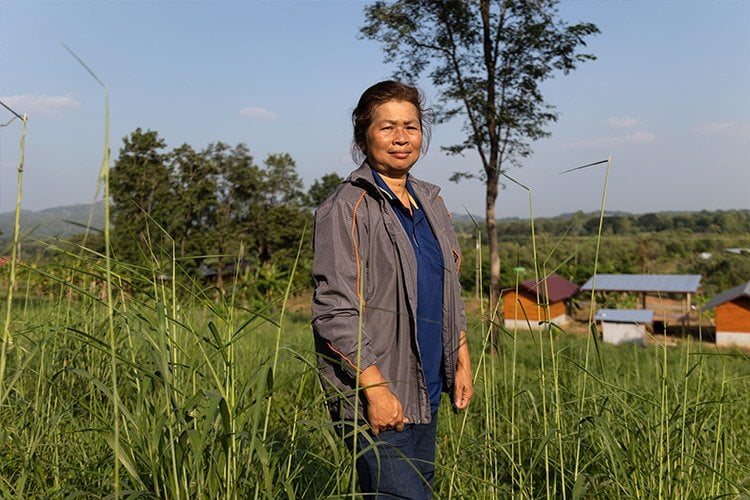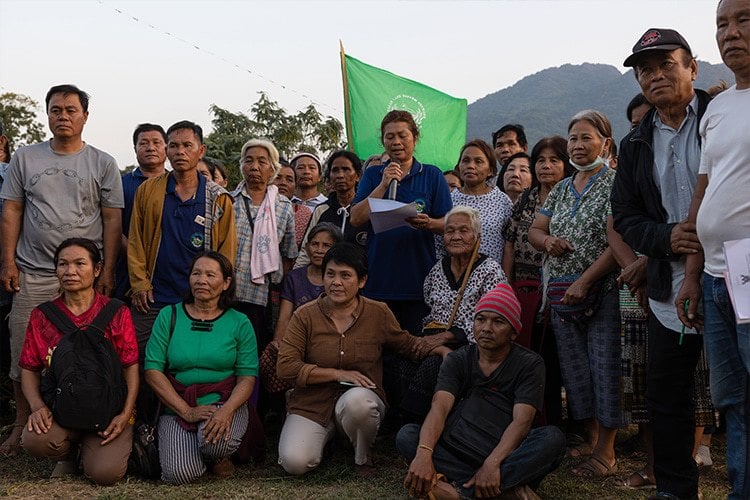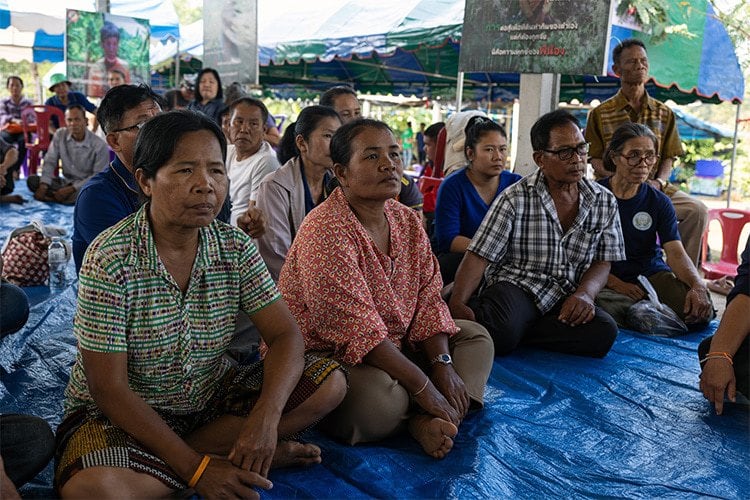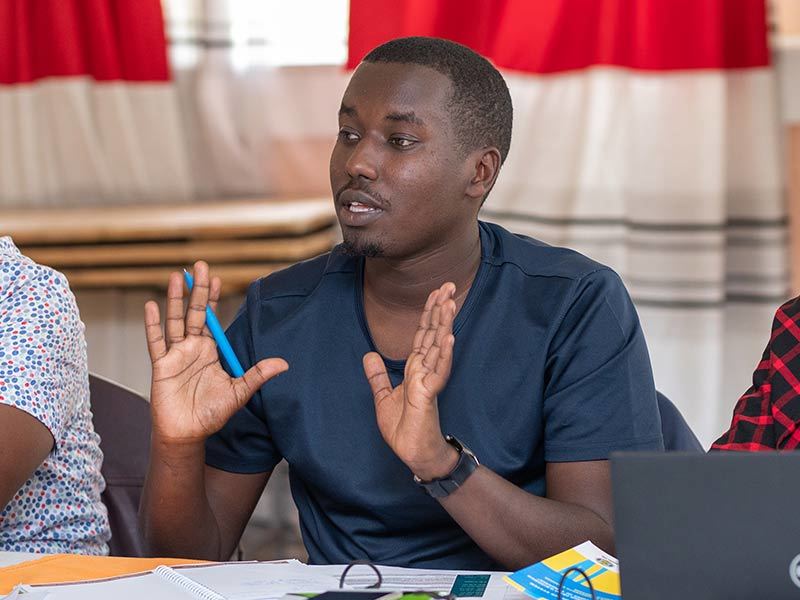Wichunai “Tukta” Silaori was just a child when officers from the Thai government evicted her community from their farmland in Thailand’s rural Isaan region to make way for a vast eucalyptus plantation. She still remembers her father carrying her into the jungle, leaving their homes behind.
“I thought it was all exciting. I thought we’d be surrounded by wildlife and eat wild-growing food,” she says. “But it was a childhood fantasy. We were given no compensation from the state. I had no idea how devastating losing your land could be.”
Decades later, Tukta knows that devastation all too well. She spent years entrenched in a legal struggle to return to the land her family worked for generations. But today, their village — Bo Kaew — is a success story in the wider struggle for land rights in Thailand. In 2020, Tukta and over 120 families received plots of land back — enough to re-establish small subsistence farms. They devoted the rest to a communal space and a market where villagers sell local, organic products like fruit, chilis, coffee and banana wine.

“Being a farmer is not only about farming,” says Tukta. “It’s about creating a community that benefits us all.”
Bo Kaew is one of 36 Thai villages that make up Isaan Land Rights Network — a fiercely resilient coalition of communities fighting for the rights to their own land. Each community’s case is unique and complex; most villagers do not have official, state-recognized deeds proving ownership. Thailand has re-zoned much of the country’s rural land — where millions of families grow food or forage — as ‘protected forests,’ absorbed it into national parks, or devoted it to the industrial production of cash crops like eucalyptus or rubber.
Supported by ILRN’s team of activists and experts, these villagers exist inside a bureaucratic nightmare — cases often take years, or even decades, to resolve, while families are forced off their land and out of their homes.
Bo Kaew’s success made it the perfect spot for ILRN’s latest gathering in late 2024. Over 100 villagers from 25 of the network’s communities rolled up in the beds of pick-up trucks from around the region, ready to learn, listen, strategize and take action.
But struggle isn’t the first thing you’d notice. It’s warmth. See for yourself in the video below:
“To build a movement, you’ve got to create a family environment. It can’t be all academic and legal,” says Oranuch “Tai” Phonpinyo, one of ILRN’s coordinators. “The struggles we face are heavy, so the feeling between us must be natural, relaxed and even joyful. People slowly feel brave enough to share their stories. To build solidarity, you need to offer people a feeling of harmony, closeness, and safety.”
For three days, Tai, her husband Pramote, and their team of staff and volunteers, led intensive discussions about the legal challenges of communities in their network. But just as critically, the group ate together; an open-air kitchen was buzzing non-stop. They laughed, danced, sang and prayed; some cried and held each other. The gathering felt like a family reunion, complete with village elders explaining to kids how things used to be so different.

Both the date and the location of ILRN’s gathering were auspicious: 2024 marked two decades since Bo Kaew villagers, including Tukta, launched a brave act of civil disobedience, occupying the local forestry office to protest their evictions.
“It’s no coincidence we’ve gathered here in Bo Kaew today,” Pramote announced to the crowd. “We’ve made progress. We see success. But our fight continues. We have been pushed around, violated, abused and even killed for standing up for our rights. If history is told by wealthy landowners and the government alone, we won’t exist. But we have the right to write our own history, and fight for our own futures.”
As the sun set on the third evening, the often-stoic Pramote cracked a smile. He watched people standing in line for dinner; each vibrant, traditional dish made of fresh, local ingredients that Bo Kaew could, finally, produce themselves.
“I feel overwhelmed with pride,” he said. “I’m a part of this movement. We suffer together, and we celebrate together. We fight side by side every single time. And this time is no different.”

Tukta, for one, brimmed with pride to see so many brothers and sisters strengthening each other, eating shoulder to shoulder.
“The Thai word for ‘we’ and ‘I’ is the same word: ‘Rao.’ That means there are no individual problems here,” she said. “When people here talk about their struggles, they belong to us all. I understand their sorrow because their sorrow is my own. And when we all achieve something together, every single one of us feels that power.”





